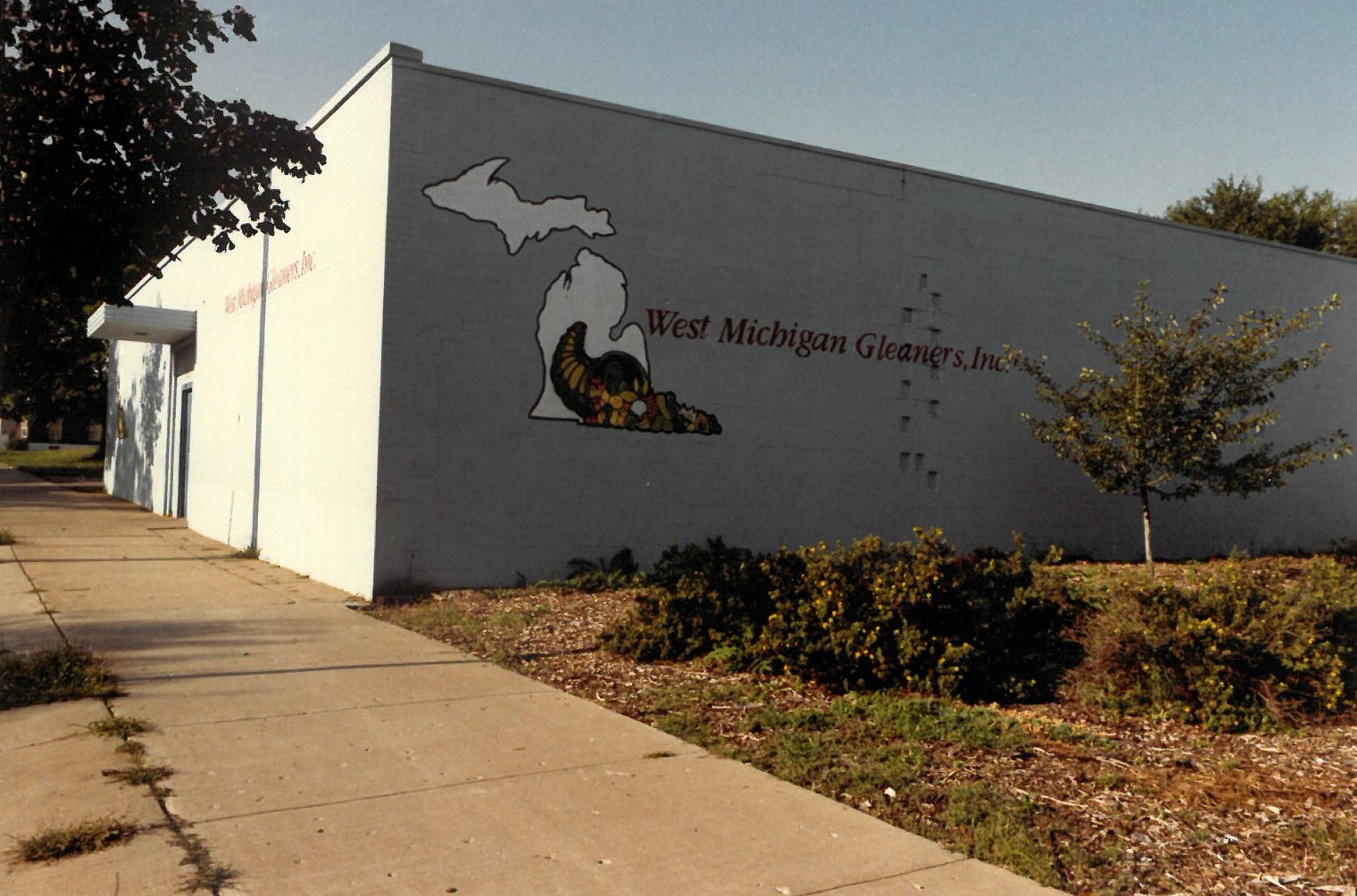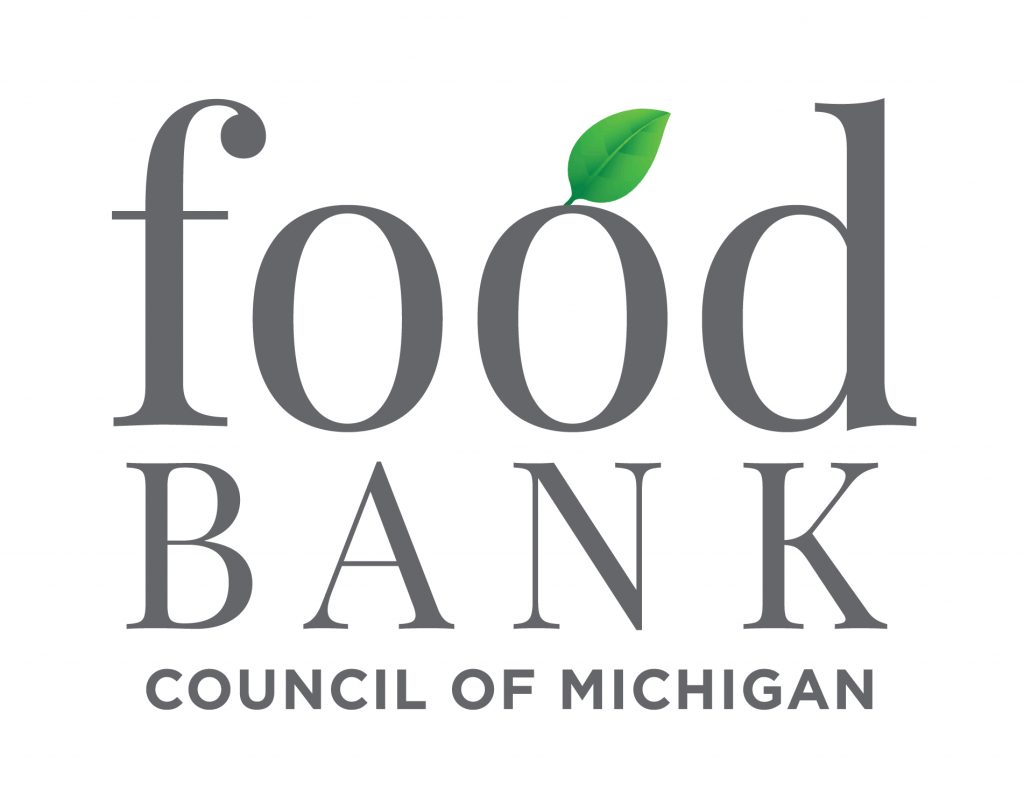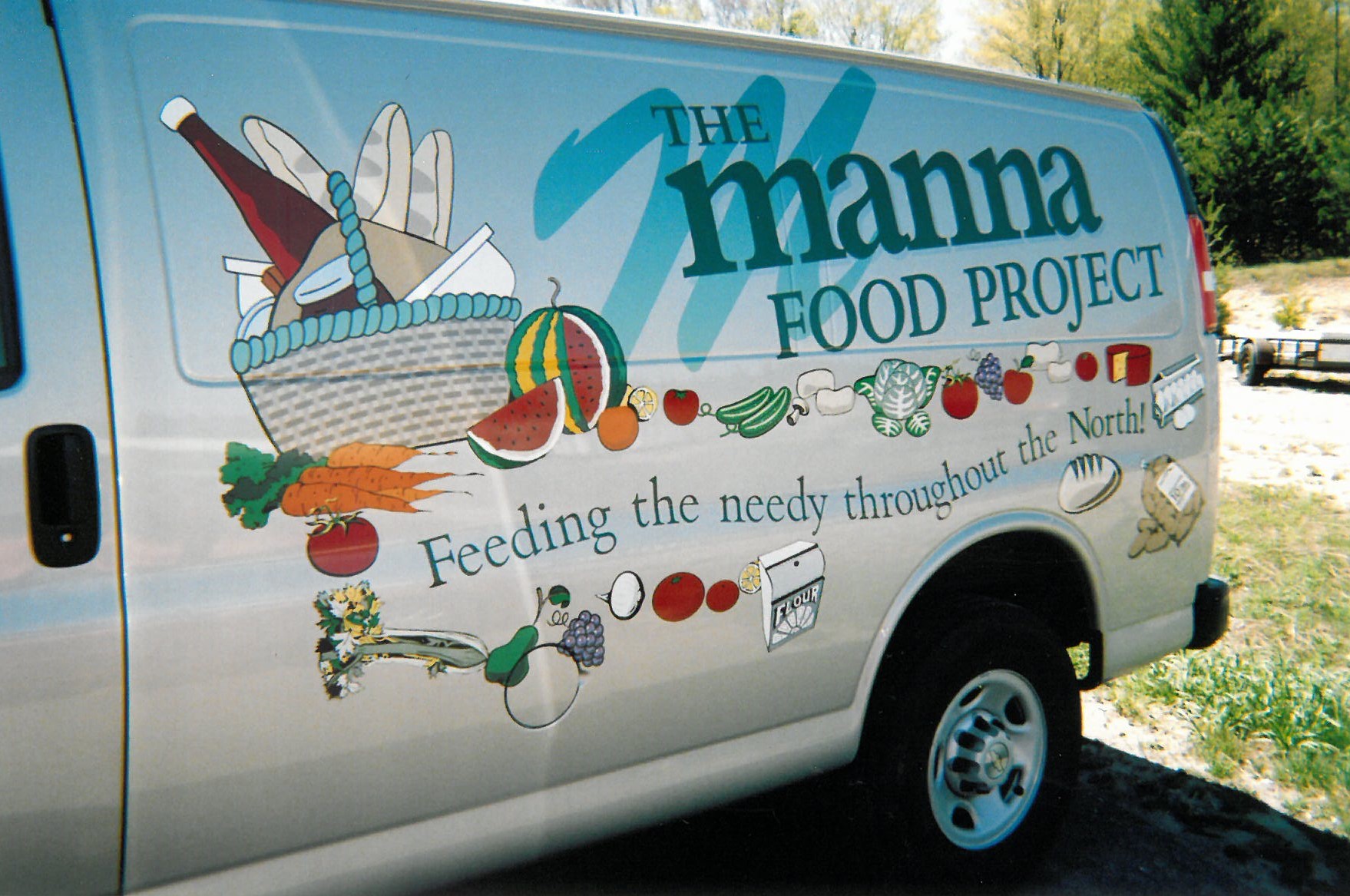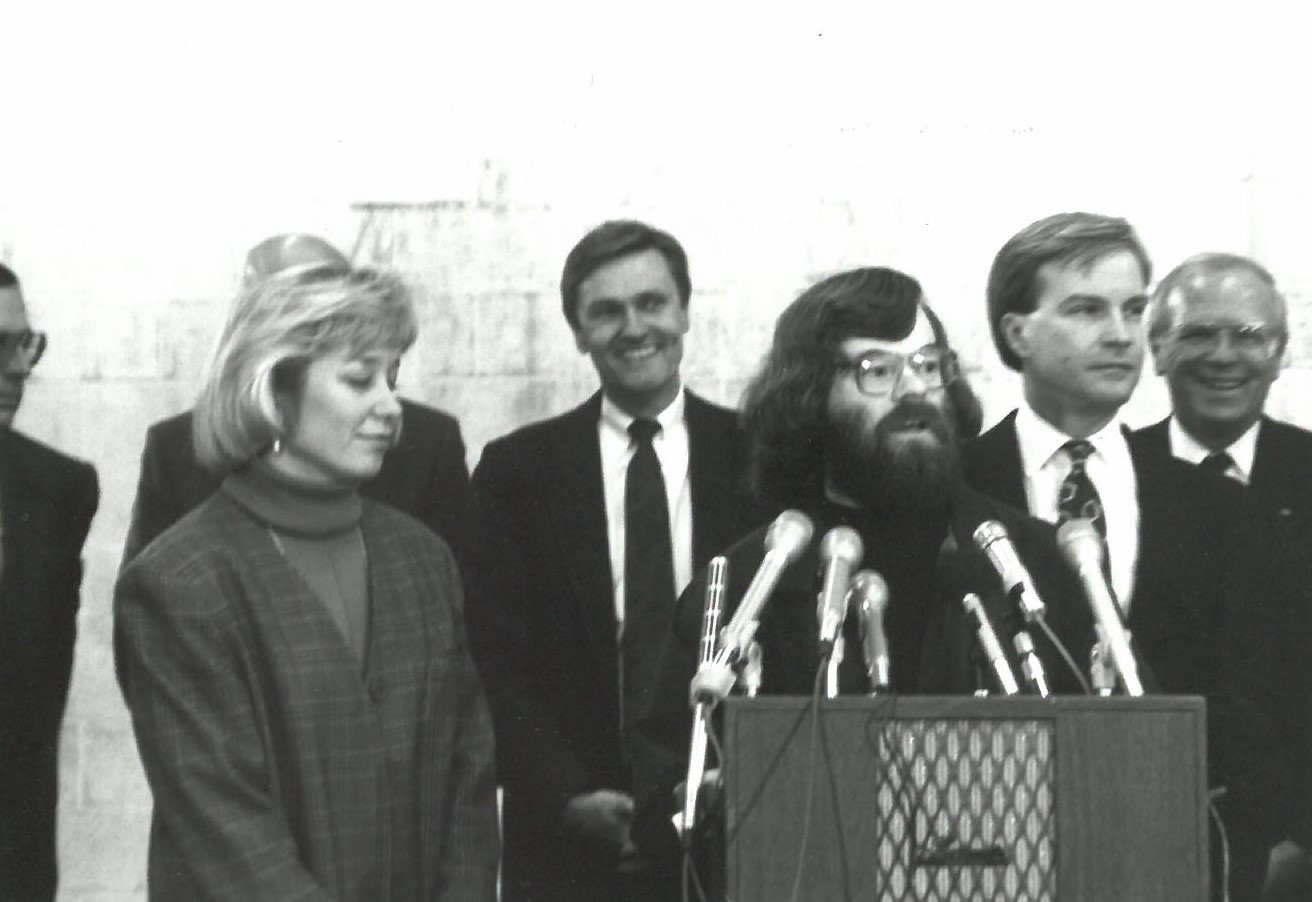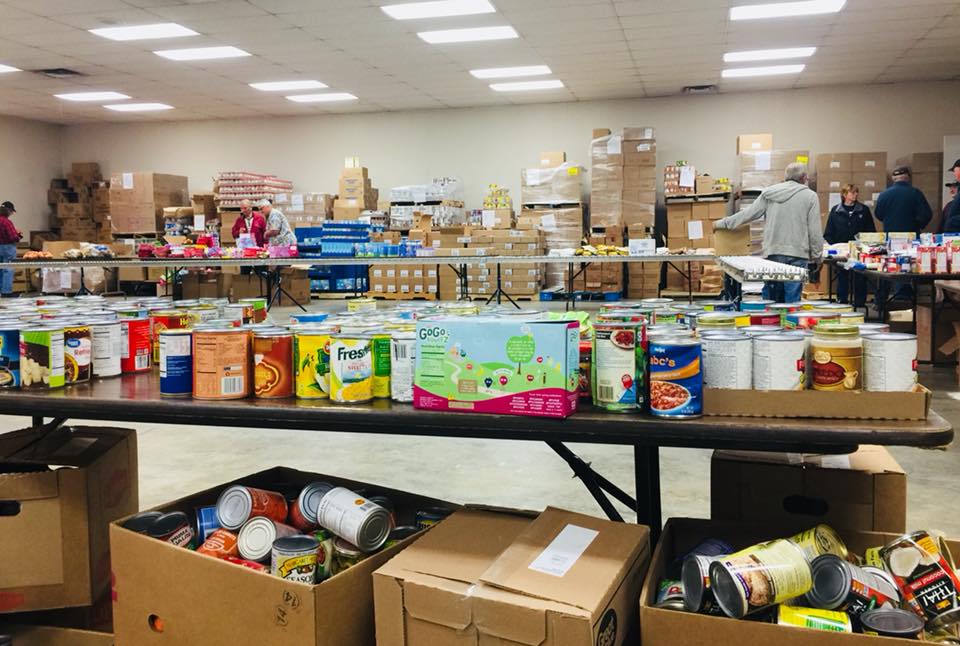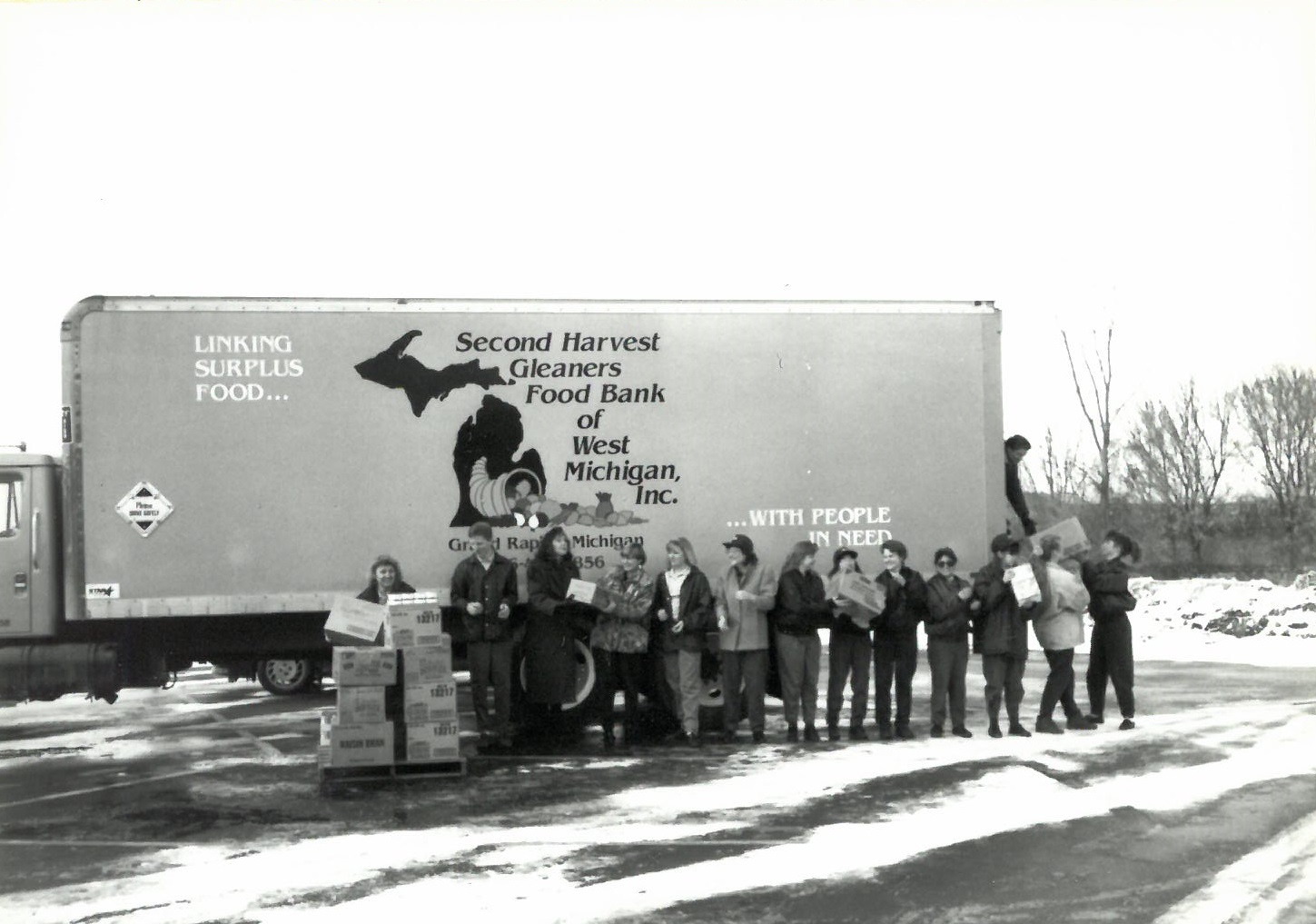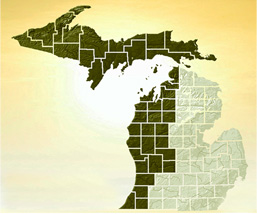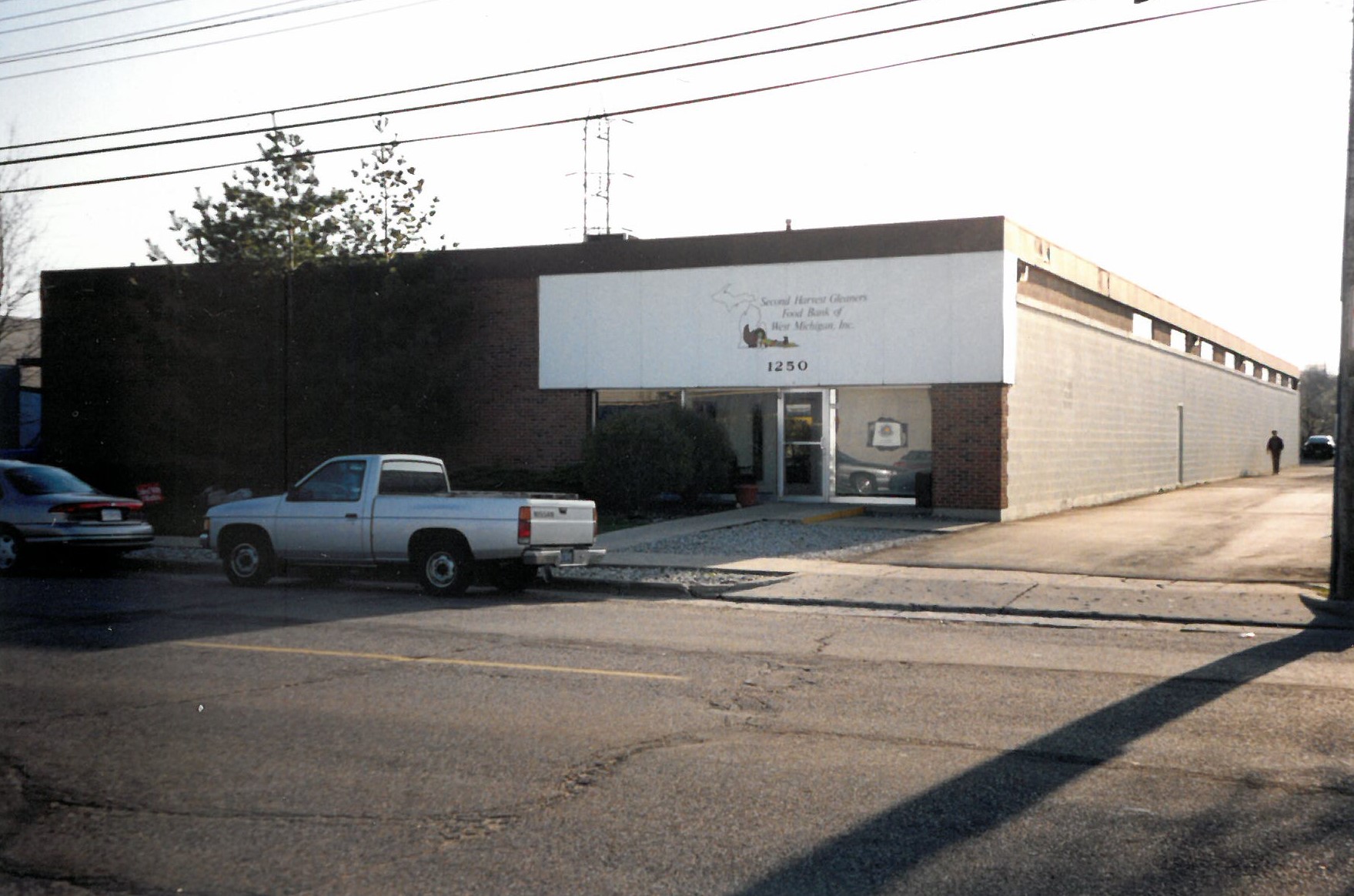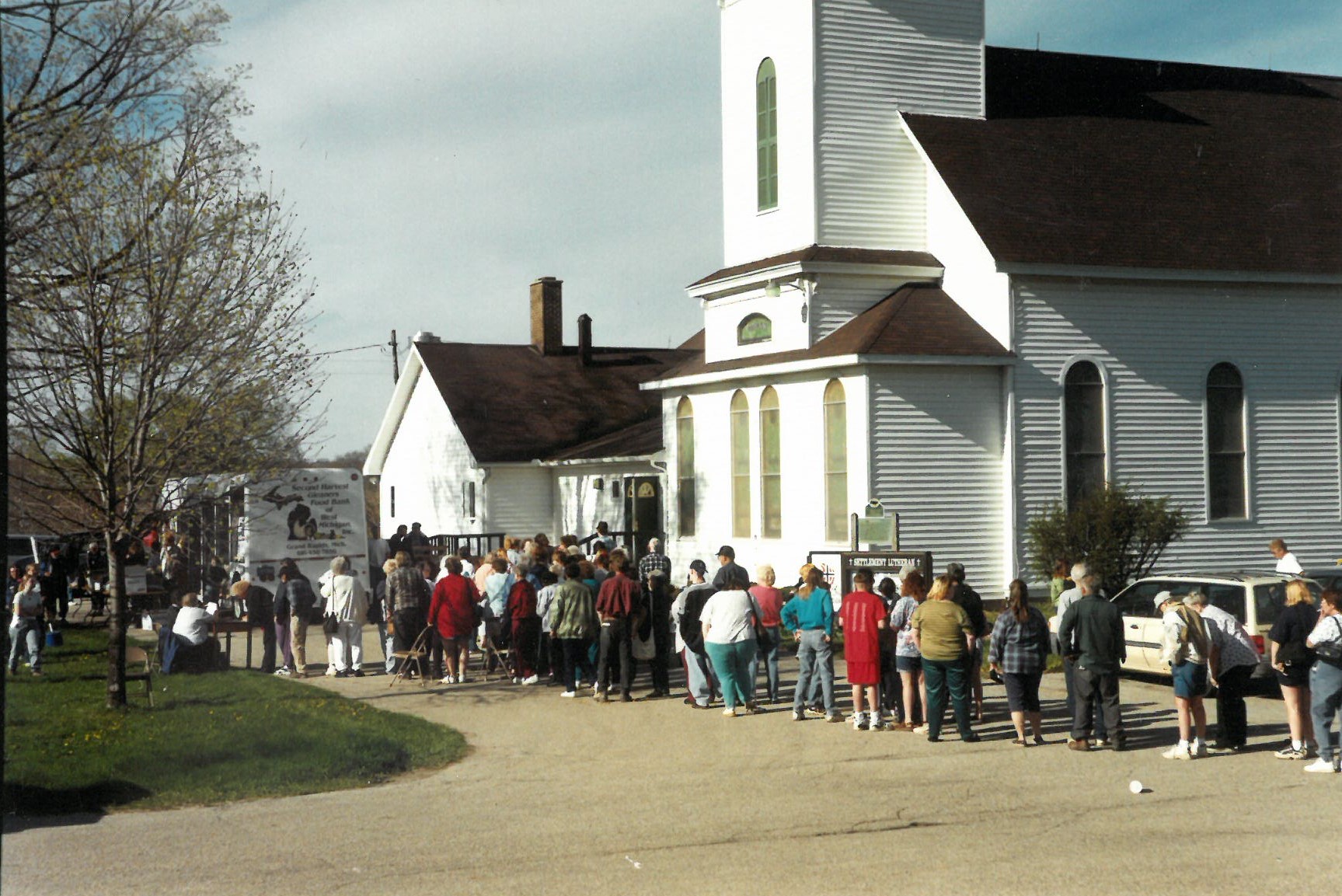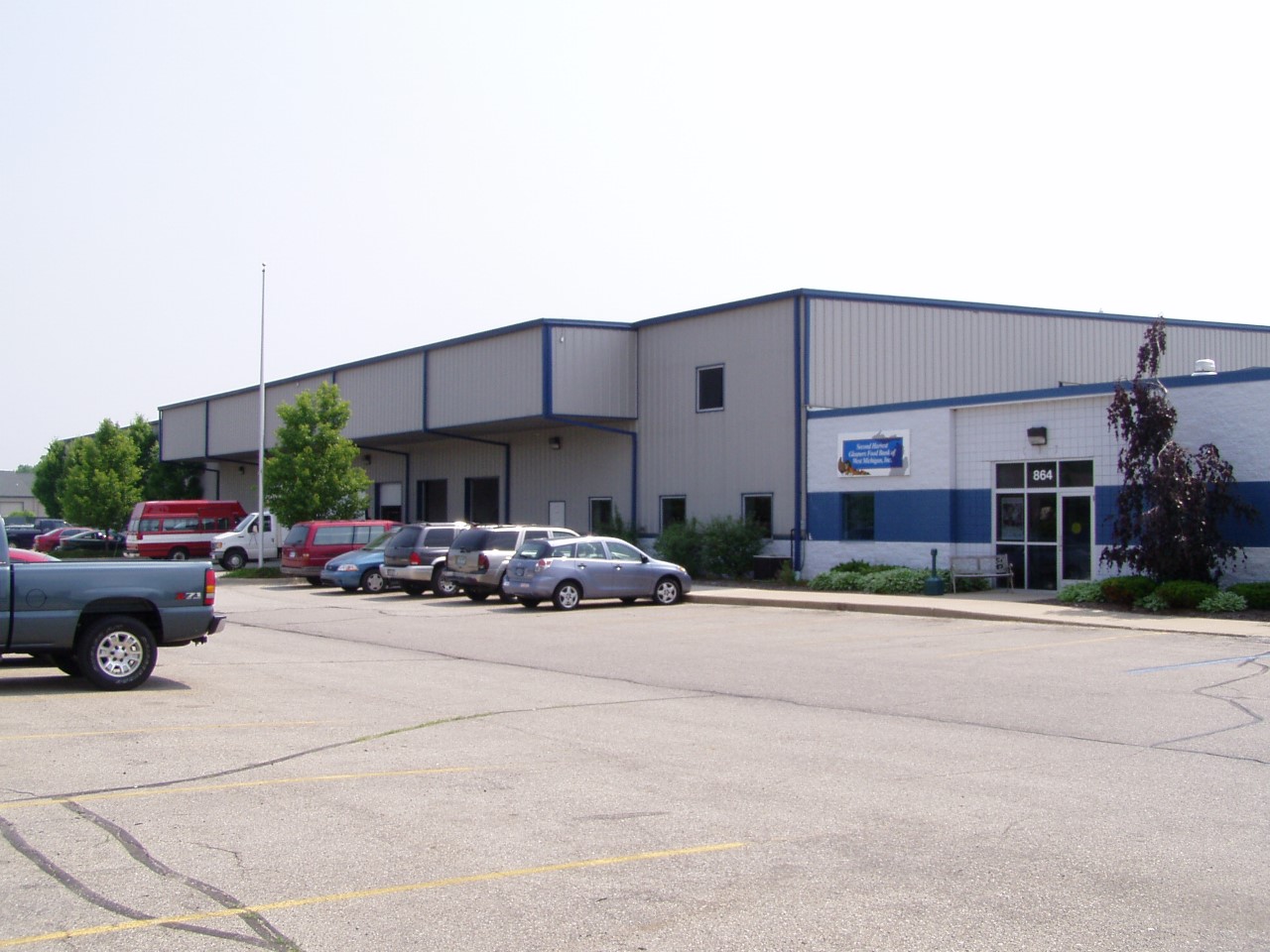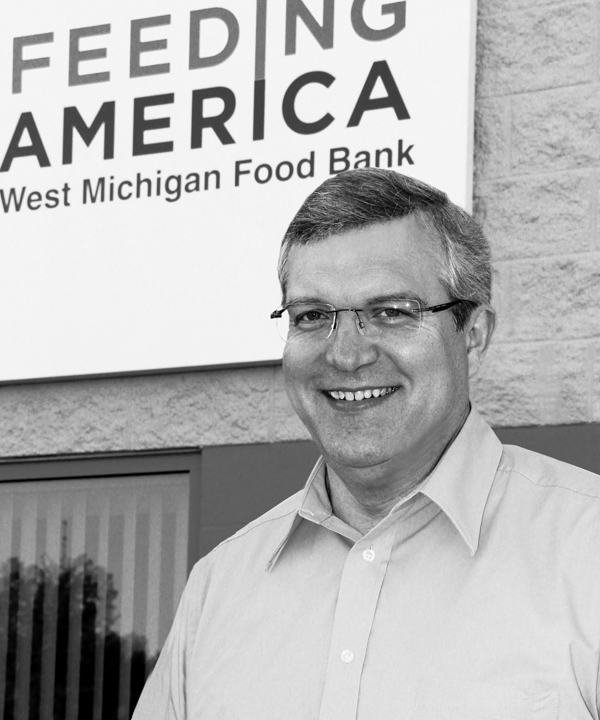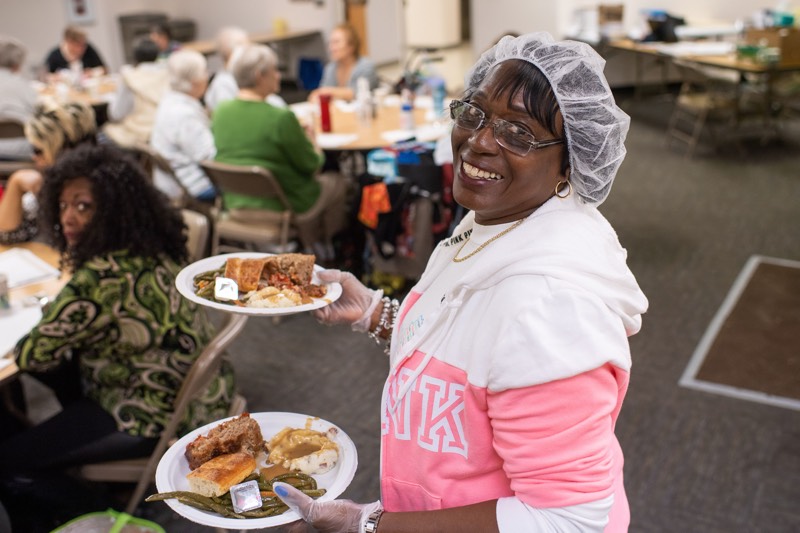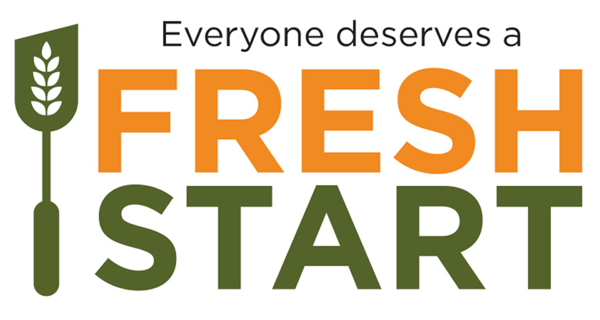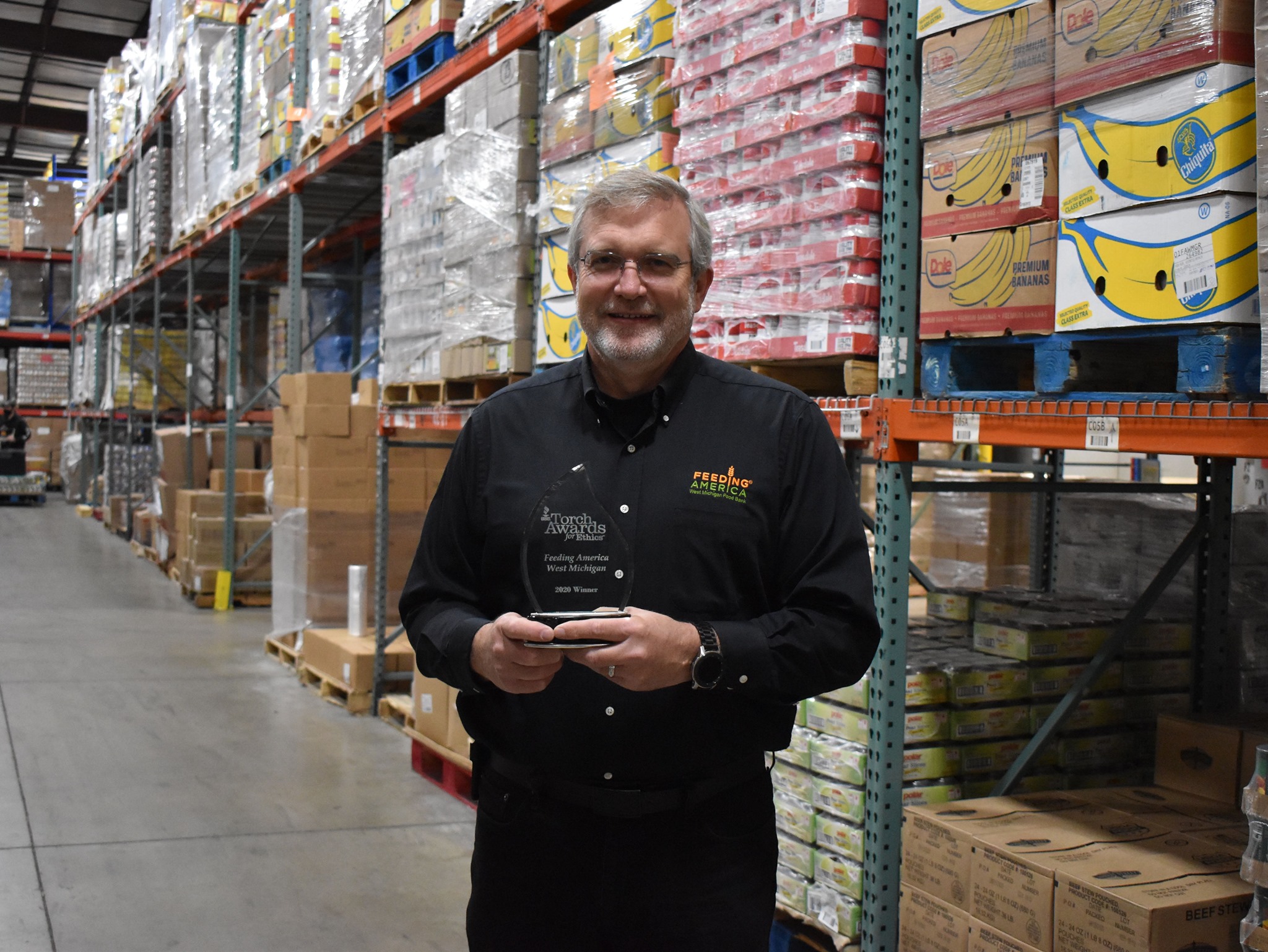Our Food Bank’s History
It all began with a root vegetable: carrots. Rev. Don Eddy, director of United Methodist Metropolitan Ministries, called a meeting to discuss the concept of a West Michigan agency resembling Gleaners Community Food Bank, which was founded in 1977 in Detroit. He made the decision to assemble such a group after seeing a truckload of perfectly good carrots being composted on a farm in Grant. On that day, he asked the farmers to stop dumping and told them that he knew a lot of people struggling to put food on their tables who could really benefit from the carrots.
Feeding America West Michigan was founded as West Michigan Gleaners, Inc. Six months later, the organization began rescuing and distributing food out of a 5,000 square-foot rented space in the old Sligh Furniture factory in Southwest Grand Rapids.
Gretchen Bouwsma became the food bank’s first full-time executive director. Prior to her filling this role, the food bank distributed roughly 92,000 pounds of food — primarily composed of donations from local farmers — under the direction of Betty Alkema.
The food bank joined America’s Second Harvest (now known as Feeding America), a budding national network of food banks that’s now 200 food banks strong.
The food bank expanded to an 11,000 square-foot warehouse on Jefferson St. SE. in Grand Rapids.
The Food Bank Council of Michigan was founded through the cooperative efforts of the state’s regional food banks (there are 7). The purpose of FBCM was to implement a unified strategy to address and alleviate hunger statewide by increasing emergency food resources and advocating on behalf of the hunger-relief network.
We partnered with Manna Food Project, established in 1987, to fight hunger Antrim, Charlevoix, and Emmet counties in Northwest Michigan.
John Arnold assumed the role of executive director. The first major change John made was to expand the food bank’s service area into the Upper Peninsula.
We began working with the Western U.P. Food Bank to serve Houghton, Baraga and Keweenaw Counties.
The food bank changed its name to Second Harvest Gleaners Food Bank of West Michigan in order to highlight its connection to the growing national network.
Our Northwest branch opened in Cadillac under the name Northwest Gleaners Food Bank.
Up until this point, the food bank’s service area was in flux. This year, the existing 40-county service area was established. The remaining Michigan counties are served by other member food banks.
To keep up with increased food distribution in its newly established 40-county service area, the food bank moved into a 22,500 square-foot facility on Front Avenue NW in Grand Rapids.
Our Southwest branch opened in St. Joseph under the name Southwest Gleaners Food Bank.
The food bank commissioned a study from the Michigan State University Extension in 1994 that finished two years later. Its findings suggested food pantries increase client choice, provide food without time limits and use the food bank more often to save money. According to a follow-up report from the MSU Extension four years after the study, the food bank increased food distribution to partners by 55 percent in those four years. John Arnold wrote a summary of the findings called Charity Food Programs That Can End Hunger in America.
This year, the food bank distributed over 10 million pounds of food, equivalent to more than 8 million meals, for the first time!
John Arnold came up with the idea for Mobile Pantries after seeing a beverage truck driving down the road. He thought the sliding doors on the sides would be perfect for quickly distributing food. One of the food bank’s most enduring and successful programs, it has now been adopted by food banks nationwide! Today, our Mobile Pantry partners host an average of 100 of these food distributions each month.
After once again outgrowing a location, we moved to our current 55,000 square-foot warehouse in Comstock Park. The extra square footage enabled us to greatly increase our distribution to the community.
Executive Director John Arnold was named Feeding America’s 2010 John van Hengel fellow. The award honors the ideals of the late John van Hengel, who developed the concept of food banking in the 1960s. It recognizes an executive of a member food bank for excellence in leadership, local impact and national influence, and entrepreneurial spirit in the area of hunger relief. As part of his fellowship, John delivered this speech to the network.
Kenneth first connected with the food bank’s mission when volunteering at Mobile Pantries with his wife, Kathy — something they still do today. After John announced his retirement, Kenneth ended his 30-year career in aerospace to fill John’s shoes. At that time, he told an MLive reporter “to me, this change is thrilling and I couldn’t imagine a more exciting mission.”
On March 18, the food bank distributed its 400 millionth pound of food — filling over 333 million plates in a span of 33 years.
In 2008, the national food bank network changed their name to Feeding America. The food bank’s name officially changed to Feeding America West Michigan Food Bank in 2009 and to Feeding America West Michigan in 2015.
Along with 6 other local organizations, the food bank helped the Community Food Club launch. Costco’s membership model inspired this “innovative and dignified approach to food security rooted in consumer choice, member participation, and access to healthy foods.”
The food bank launched community deliveries and Mobile Food Pantries in the Central and Eastern Upper Peninsula, ultimately increasing the amount of food distributed in those regions by 50%.
The Fresh Start initiative aims to break the cycle of poor nutrition that leads to chronic disease and impaired development.
Between March 16 and August 31, our network made a big impact! We continued working to meet the heightened need throughout 2020. By the end of the year, we had distributed 28.3 million pounds of food — equivalent to 23.6 million meals. Much of this food was distributed through our Mobile Pantries, which saw a 64% increase in attendance.
In 2020, Feeding America West Michigan received a Torch Award for Ethics through the Better Business Bureau Serving Western Michigan. Torch Awards for Ethics recognize businesses and nonprofits that demonstrate integrity and a strong commitment to ethics in all that they do.
Though the food bank has changed over the years, our commitment to feeding neighbors in need has remained steadfast. For as long as hunger threatens our communities, Feeding America West Michigan will be there to lend a helping hand. See our 40th-year webpage.






